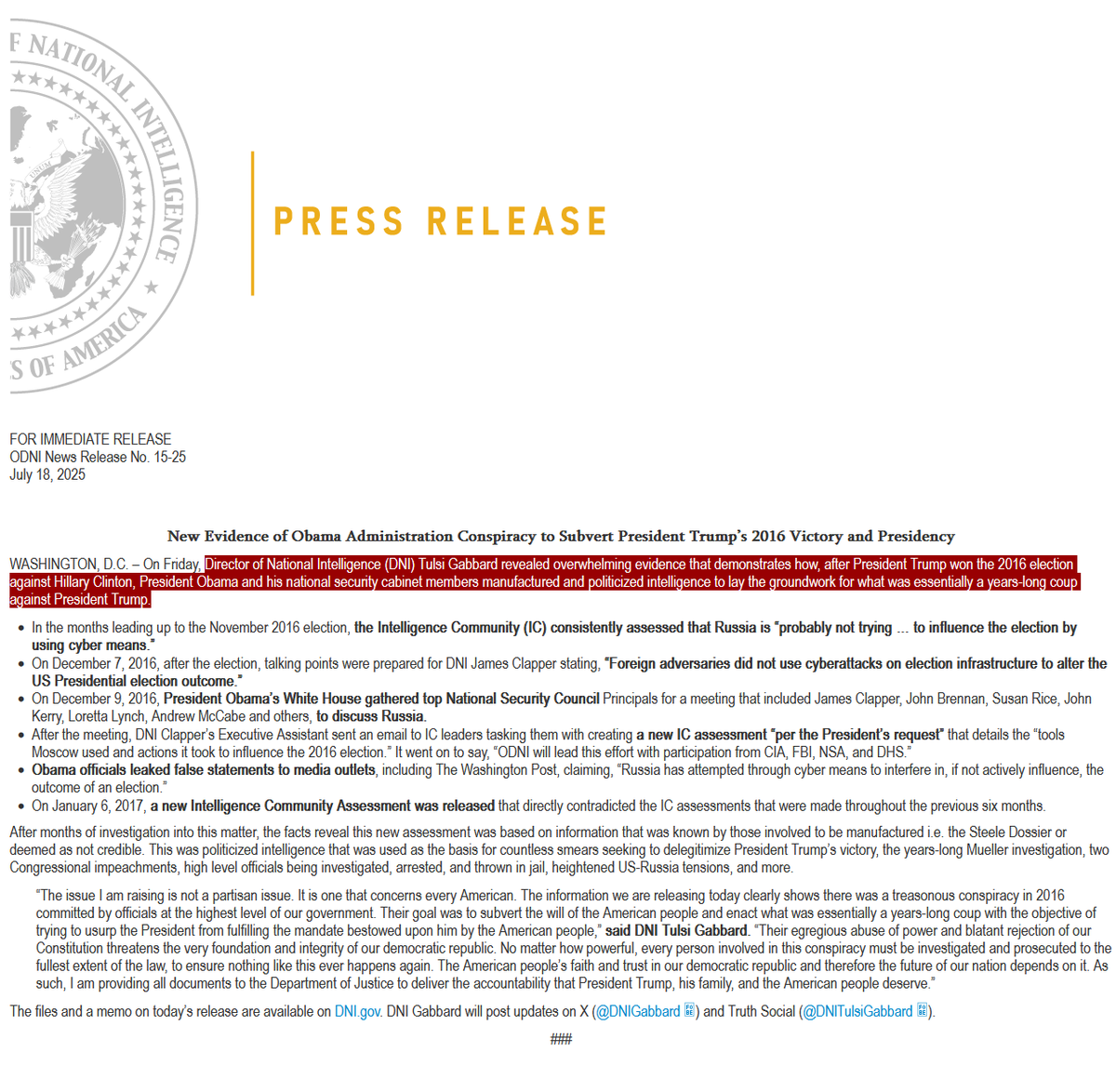11
Epstein Files / Re: Jeffrey Epstein Hoax
« Last post by American Girl on Today at 06:23:10 pm »Excerpt:
Attorney General Pam Bondi just dropped a bombshell that could send shockwaves through the Deep State.
In a bold legal move, Bondi has filed a motion to unseal the grand jury testimony related to Jeffrey Epstein—an unprecedented step that could finally expose who knew what, and when. The decision to file comes amid mounting pressure and criticism over Bondi’s inconsistent handling of the Epstein case in recent months.
For weeks, speculation has swirled around whether Bondi would take a stand or fold under pressure. Now, it appears she’s chosen to go all in—potentially putting herself and others in political crosshairs.
I can't wait to see who files objections to this request.
This is great, next the arrest warrants for treason. She can make up for a lot of bad decisions in 2 fell swoops, release the files and arrest the traitors.
Great weekend if she does.
https://www.usasupreme.com/breaking-ag-pam-bondi-files-motion-to-unseal-epstein-grand-jury-testimony/
Attorney General Pam Bondi just dropped a bombshell that could send shockwaves through the Deep State.
In a bold legal move, Bondi has filed a motion to unseal the grand jury testimony related to Jeffrey Epstein—an unprecedented step that could finally expose who knew what, and when. The decision to file comes amid mounting pressure and criticism over Bondi’s inconsistent handling of the Epstein case in recent months.
For weeks, speculation has swirled around whether Bondi would take a stand or fold under pressure. Now, it appears she’s chosen to go all in—potentially putting herself and others in political crosshairs.
I can't wait to see who files objections to this request.
This is great, next the arrest warrants for treason. She can make up for a lot of bad decisions in 2 fell swoops, release the files and arrest the traitors.
Great weekend if she does.
https://www.usasupreme.com/breaking-ag-pam-bondi-files-motion-to-unseal-epstein-grand-jury-testimony/

 Recent Posts
Recent Posts